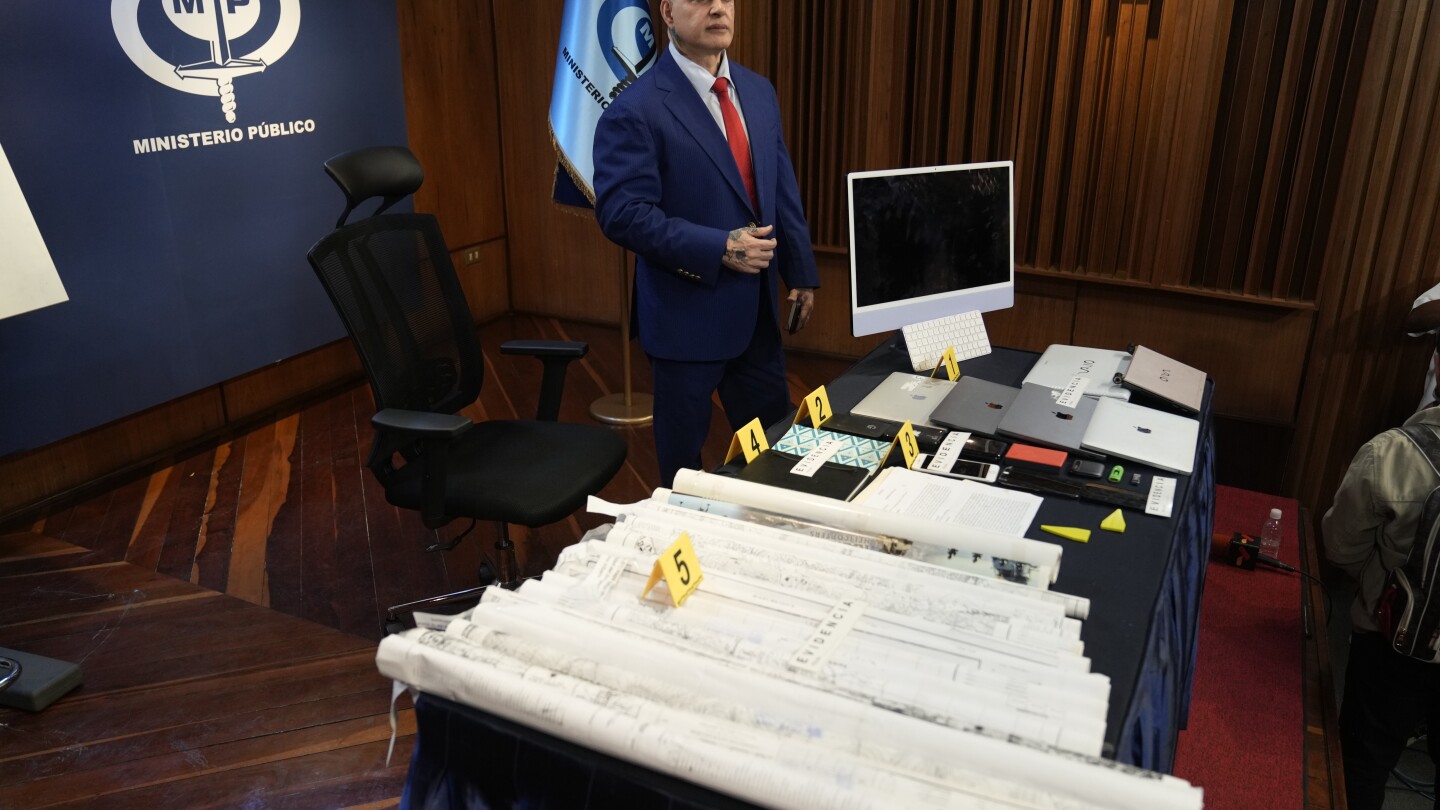CARACAS, Venezuela (AP) — Venezuela’s government and opposition on Wednesday doubled down on their respective defense and condemnation of the detention of a prominent human rights attorney, evidencing once more their vastly different interpretations of an agreement to work on conditions for a free and fair presidential election this year.
The deal, signed in October with the blessing of the United States government, binds both sides to promote a political and social climate favorable to a peaceful election. But while Attorney General Tarek William Saab showed the nation maps, laptops, cellphones and other items he said link attorney Rocio San Miguel to an alleged plot to destabilize the country, the representatives of a faction of the opposition pointed to the arrest as the latest example of escalating repression.
Their assertions came as the Norwegian diplomats guiding the negotiations between the government of President Nicolás Maduro and a U.S.-backed opposition group met with both sides in the capital, Caracas, an unusual step in a years-long process where official meetings have always taken place in neutral territory.
Signed in Barbados, the October deal called on the opposing factions to work toward several conditions ahead of the election, but subsequent government decisions stalled any meaningful progress.
Gerardo Blyde, chief negotiator for the opposition group known as the Unitary Platform, told reporters his faction presented his negotiating counterpart, National Assembly leader Jorge Rodriguez, and Norwegian diplomats two document listing multiple violations of the agreement and acts of repression.
“They must de-escalate, we repeat, they must de-escalate persecution,” Blyde said. “The procedures that each party followed to choose their candidate must be respected. Conditions that allow a transparent electoral process must be established.”
Blyde said he and his faction cannot make determinations about evidence in the cases against San Miguel and her family because they “are not judges,” but he contended that “due process and the right to defense and the presumption of innocence that are in the constitution do not exist” at this moment. He also criticized the government’s decision last week to order the local United Nations office on human rights to suspend operations.
In an nationally televised press conference, Saab presented what he characterized as evidence of San Miguel’s involvement in one of multiple anti-government conspiracies he announced last month. He presented equipment he said belonged to San Miguel and a document that allegedly described one of the conspiracies and mentioned her.
Saab zeroed in on series of printed maps showing different parts of Venezuela that he said highlighted sensitive military locations of which he said she should not have knowledge. He repeatedly said a human rights attorney has no use for that information.
“But for God’s sake, tell me where in the world, having these elements of conviction, these investigative elements at hand, you do not initiate an investigation, you do not place an immigration alert, you do not have an arrest warrant,” Saab said of the alleged evidence against San Miguel whose daughter, two brothers and two ex-husbands were also detained.
San Miguel, 57, has specialized in studying Venezuela’s shadowy, often corrupt armed forces. She is the head the non-governmental organization Control Ciudadano, which focuses on the defense of human rights, security and the armed forces.
San Miguel was taken into custody Feb. 9 at the airport near Caracas while she and her daughter awaited a flight to Miami. Authorities did not acknowledge her detention until two days later. She is being held at the Helicoide prison – an infamous institution for political prisoners – on charges of treason, conspiracy and terrorism.
In addition to San Miguel, only ex-husband Alejandro Jose Gonzales de Canales Plaza remains in custody. He is facing charges of revealing state and military secrets and obstruction of justice.
More than 200 non-governmental organizations and several governments have condemned her detention. The Geneva-based U.N. rights office of the high commissioner in a tweet four days after her arrest – at a time when San Miguel had not yet had contact with her family or attorneys— said her status potentially qualified “her detention as an enforced disappearance.”
Saab the “theory that there was an enforced disappearance” was “offensive” to the agreement that authorized the office in 2019.
“That is why the Venezuelan state… decided to temporarily suspend that office for 30 days,” he said.

